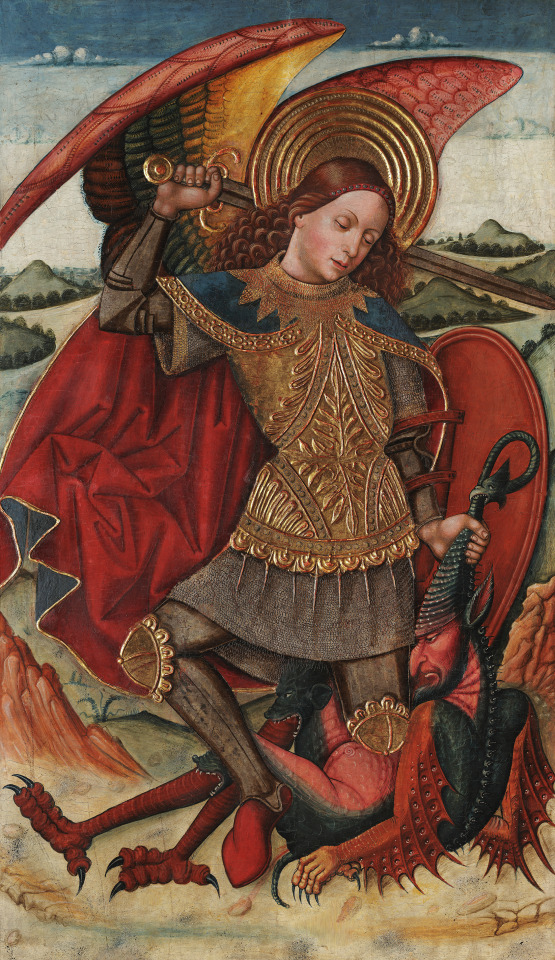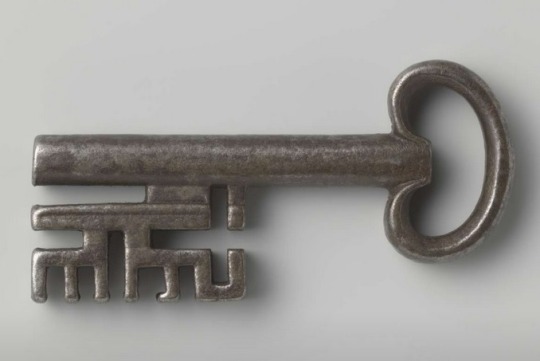#1400s
Explore tagged Tumblr posts
Text

fragment of double-cloth, peru, c. 1100-1400.
3K notes
·
View notes
Text





Various keys, German, 15th Century
From the Met Museum
4K notes
·
View notes
Text

Rogier van der Weyden or Roger de la Pasture (Netherlandish, c.1399-1464) Triptych: The Crucifixion, St. Mary Magdalene, detail, ca.1443-45 Kunsthistorisches Museum Wien
#Rogier van der Weyden#Roger de la Pasture#netherlandish#netherlands#the crucifixion#1400s#art#fine art#european art#classical art#europe#european#fine arts#oil painting#europa#St. Mary Magdalene#Saint Mary Magdalene#St Mary Magdalene#christian#christianity#catholic#catholic art#catholicism#western civilization#angel#flemish
2K notes
·
View notes
Text





Keys, 1400-1750.
1K notes
·
View notes
Text
13th century historically accurate Kirtle


For the sims 4, Base Game compatible
>>> Download <<<
Don't repost or claim my CC as your own, You're free to convert it without asking, but credit me and tag me cuz I wanna see it :)
#sims 4 ultimate decades challenge#sims 4 maxis#13th century#medieval#medieval cc#sims 4 medieval#extremedecadeschallenge#sims 4 historical#base game#1300s#1400s#clothing#tudor#sims 4
548 notes
·
View notes
Text





1400s WOMEN - PART 1
Following on from the simple modesty of the 1300s, female hair in the 1400s became a lot more elaborate thanks to the addition of hair pieces, ribbon and other decorations. Braided styles evolved into very detailed and decorative concoctions. Styles also became more flowy and romantic, often with curls framing the face. CC links under the cut.
You can find more of my historical content here:
1300s ✺ 1400s ✺ 1500s ✺ 1600s ✺ 1700s
1 - Larsa by Daylife Sims
2 - Beatrice by Simstrouble
3 - Shiro by Sim Lotus
4 - Camellia by Clumsy Alien
5 - Daenerys by Puderosims
6 - Hoppie by Simstrouble
7 - Emma by Buzzard's Bits and Bobs
8 - Ye Medieval Dragon Queen by Nilyn (TSR)
9 - Leonarda by Melancholy Maiden
10 - Cecilia by Buzzard's Bits and Bobs
11 - Braid Snood by Melancholy Maiden
12 - Ye Medieval Braided Updo by Daisy Sims (TSR)
13 - Masquerade by Tekri
14 - Pai Chan Braids by FYSims
15 - Hekate by Naunakht
16 - Zelda by Simandy
17 - Ye Medieval Margot by Shimydim (TSR)
18 - Sophia by G
19 - Serea Hair V1 by Redhead Sims
20 - Mari by Wasteland Whisperer
21 - Daenerys by Birksches
22 - Lucia by Melancholy Maiden
23 - TSM Hair for TS4 by S3 Sage
24 - Aspen by Oydis
25 - Braid Dream by Redhead Sims
26 - Double Braid by Wasteland Whisperer
27 - Pearls Set by Daylife Sims
28 - Mhysa by Quirky Introvert
29 - Ye Medieval Nezetta by Leah Lillith (TSR)
30 - Rapunzel by Tekri
With thanks to some amazing creators: @daylifesims @simstrouble @simlotus @clumsyalienn @puderosasims @buzzardly28 @tekri @simandy @redheadsims-cc @wastelandwhisperer @oydis @qicc
#ts4#ts4 cc cas#the sims 4#ts4 decades challenge#sims 4 decades challenge#ts4 cc hair#ts4 historical#ts4 history challenge#sims 4 history challenge#sims 4 historical#sims 4 medieval#ts4 medieval#sims medieval#1400s#medieval#historical cc#renaissance#15th century#ultimate decades challenge#hair collection
3K notes
·
View notes
Text
Top 5 Medieval Animals
Bat

2. Owl

3. Lion

4. Cat(s)

5. Dog..

#1400s#medieval art#renaissance#15th century#middle ages#medieval#wildlife#fauna#dogs#animals#aminals#cute animals#funny memes#funny shit#funny stuff#humor#jokes#memes#funny#lol#funny post#haha
365 notes
·
View notes
Text









Westeros fashion studies: The Reach
"The Reach,historically the Kingdom of the Reachor the Green Realm,is one of the constituent regions of the Seven Kingdoms on the continent of Westeros. It was formerly a sovereign nation ruled by the Kings of the Reach before Aegon's Conquest. It is the second-largest of the kingdoms behind the north and is considered the most fertile and heavily-populated part of Westeros. The Reach is considered the home of chivalry in Westeros. It is the place where knighthood is looked upon with the greatest reverence and esteemed the most. It is also the place where the rules for tourneys are the most stringent and managed. The Reach is ruled from the castle of Highgarden by House Tyrell. Notable houses have included, Fossoway,Hightower and Redwyne. Noble bastards born in the Reach are given the surname Flowers."
#illustration#artists on tumblr#chiara's art#digital illustration#digital art#fanart#art#pre asoiaf#a song of ice and fire#asoiaf fanfic#asoiaf art#asoiaf fanart#valyrianscrolls#the reach#house tyrell#house hightower#house redwine#house fossoway#ilreleonewikia#fashion studies#fashion illustration#character design#1400s#renaissance#italian renaissance#inspiration#fashion inspo#alicent hightower#margery tyrell
223 notes
·
View notes
Text

The Annunciation, Petrus Christus, c. 1445
#petrus christus#annunciation#renaissance#northern renaissance#ecclesiastical art#oil on wood#oil painting#painting#netherlands#dutch artist#dutch art#dutch painter#bruges#classical art#academic art#european art#fifteenth century#15th century#1400s#angel#angels in art#virgin mary#angel gabriel#art history#art#artwork
201 notes
·
View notes
Text

submitted by @shilohta 🩶🩷💛
#historical fashion poll submission#very historical historical fashion polls#historical fashion polls#fashion poll#historical dress#historical fashion#dress history#fashion history#fashion plate#15th century#15th century dress#15th century fashion#1400s#1400s dress#1400s fashion#1460s#1470s#1480s#skirt
281 notes
·
View notes
Text

#dark academia#girlblogging#lana core#art#lana del rey#aesthetic#lana del rey aesthetic#history#art history#california#french girl aesthetic#european art#europe#middle ages#medieval art#medieval#1400s#pretty#pretty things#budapest#nature#traveling#travel#travel aesthetic#dark aesthetic#light academia#romantic academia
247 notes
·
View notes
Text



Case for a Book, possibly belonging to a bishop, French (?), 15th Century
From the Met Museum
3K notes
·
View notes
Text

Santa Cruz, Saint Sebastian (detail), before 1508. Oil on wood, 99.5 x 46 cm. Wellcome Collection, London
#art#painting#saint sebastian#st sebastian#1500s#1400s#15th century#16th century#cruz#santa cruz#detail
881 notes
·
View notes
Text

Juan de la Abadía el Viejo (The Elder) (Spanish, c.1470-1498) Saint Michael the Archangel, c.1486 Museo Lázaro Galdiano, Madrid
#Gothic#Spanish Flemish#Flemish#juan de la abadia the older#art#fine art#european art#classical art#europe#european#fine arts#oil painting#europa#mediterranean#juan de la abadia el viejo#spanish art#spanish#spain#1400s#saint michael#archangel#angel#devil#saint michael the archangel defeated the devil
2K notes
·
View notes
Text

Key, 1400-1500, France.
1K notes
·
View notes
Text

'adoration of the magi,' from a book of hours designed by gijsbrecht van brederode, netherlands c. 1460-65.
112 notes
·
View notes